In my new video you'll see a succulent bonsai expert prune roots and branches of a 'Cork Bark' portulacaria and stage it in an art pot. Great DIY tips!
I use the term "succulent bonsai" loosely for potted succulents that suggest traditional bonsai, i.e. "the art of growing ornamental, artificially dwarfed trees or shrubs" (Webster's).
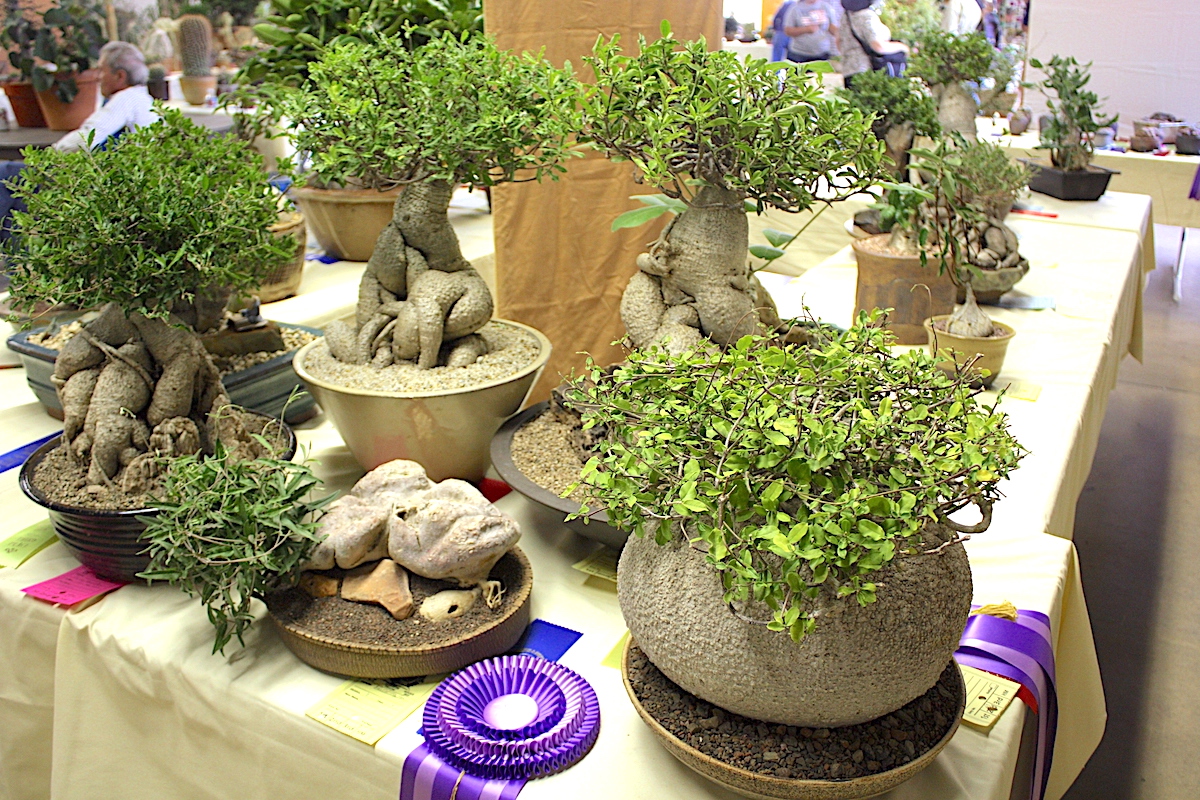
Award-winning caudiciform succulents staged like bonsai, at the Intercity Show
Succulent bonsai is similar to the art of staging succulents for shows. Collectors pair prize specimens with handmade pots, then enhance them with crushed rock topdressing and ornamental rocks.
Preferred succulents for bonsai often are those with fat trunks and roots, as seen in Philippe de Vosjoli's book, Pachyderms: A Guide to Growing Caudiciform and Pachycaul Plants. The author defines these as "species that develop thick bodies with sculptural forms."
Living Sculptures
Each is unique and perfect for enhancing patios and other outdoor sitting areas where plants are protected and easily viewed. Like pets, such specimens need grooming to look their best...but are not nearly as time consuming as, say, a small dog or bonsai'd pine. Another plus is that succulents staged like bonsai, unlike true bonsai, are rarely at risk if owners forget to water them.
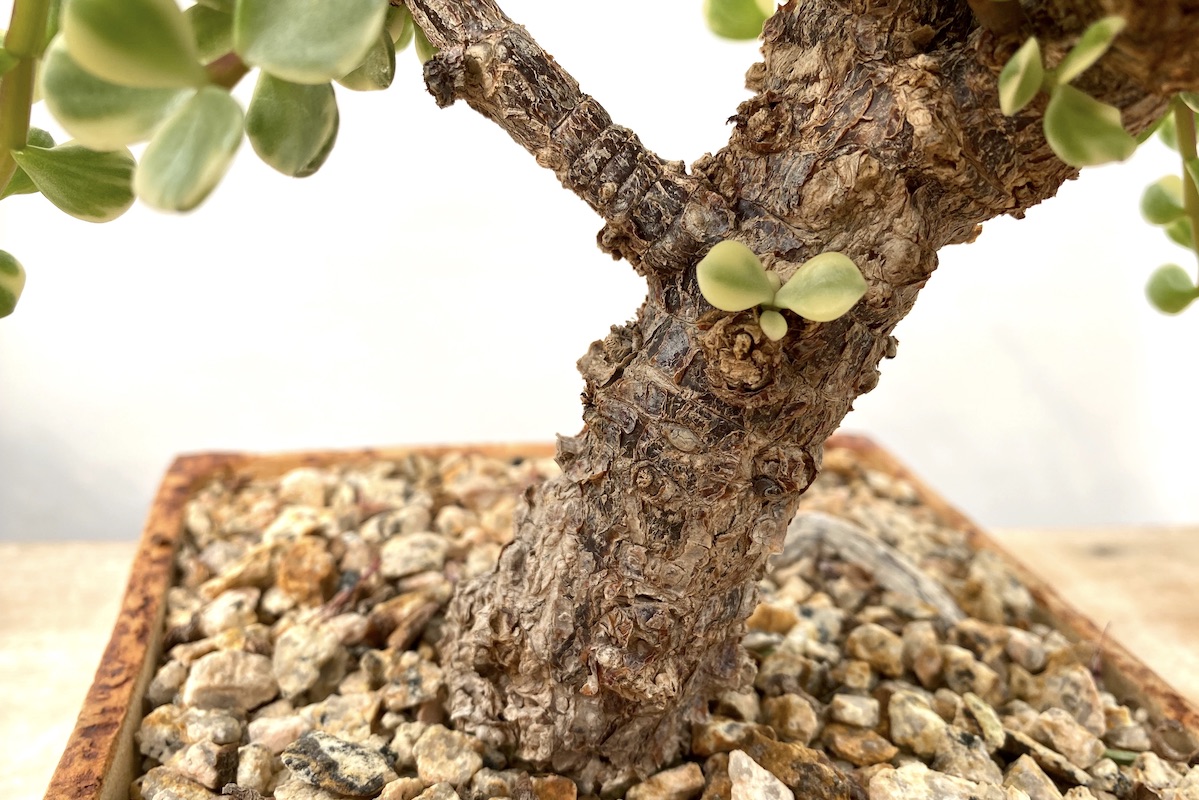
A gnarled Portulacaria afra 'Cork Bark' with variegated leaves. Textured bark lends the look of age.
In my new video, "DIY Succulent Bonsai," we revisit that Mecca of rare and intriguing succulents in San Marcos, CA: Botanic Wonders. Anthony the founder and manager demonstrates how to pot and prune Portulacaria afra 'Cork Bark', a Frank Yee cultivar that Botanic Wonders obtained from the Huntington Botanic Gardens.
The appearance of great age is a bonsai keynote. Textured trunks and limbs of 'Cork Bark' become "even more gnarly over time," Anthony says, adding that enthusiasts can get a head start with six-year-old 'Cork Bark' specimens in one-gallon pots.
Or slash the bark
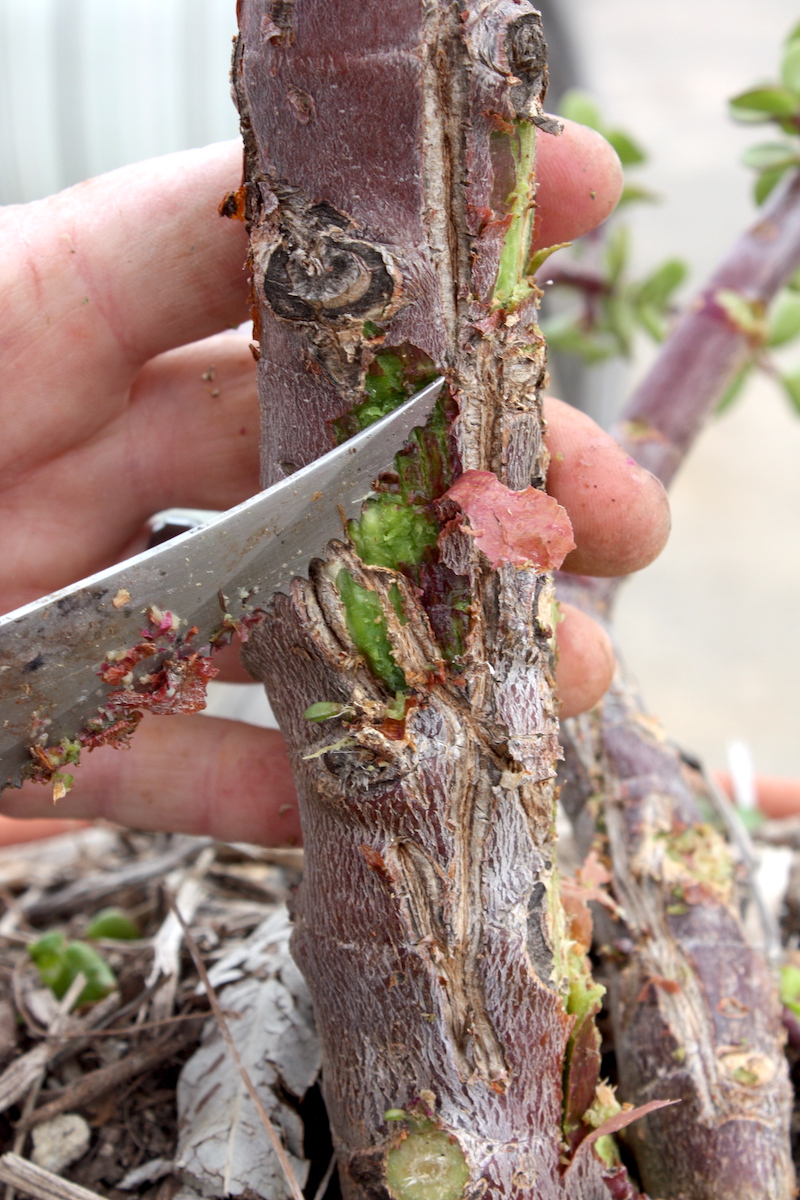
Slicing the bark of Portulacaria afra will scar it.
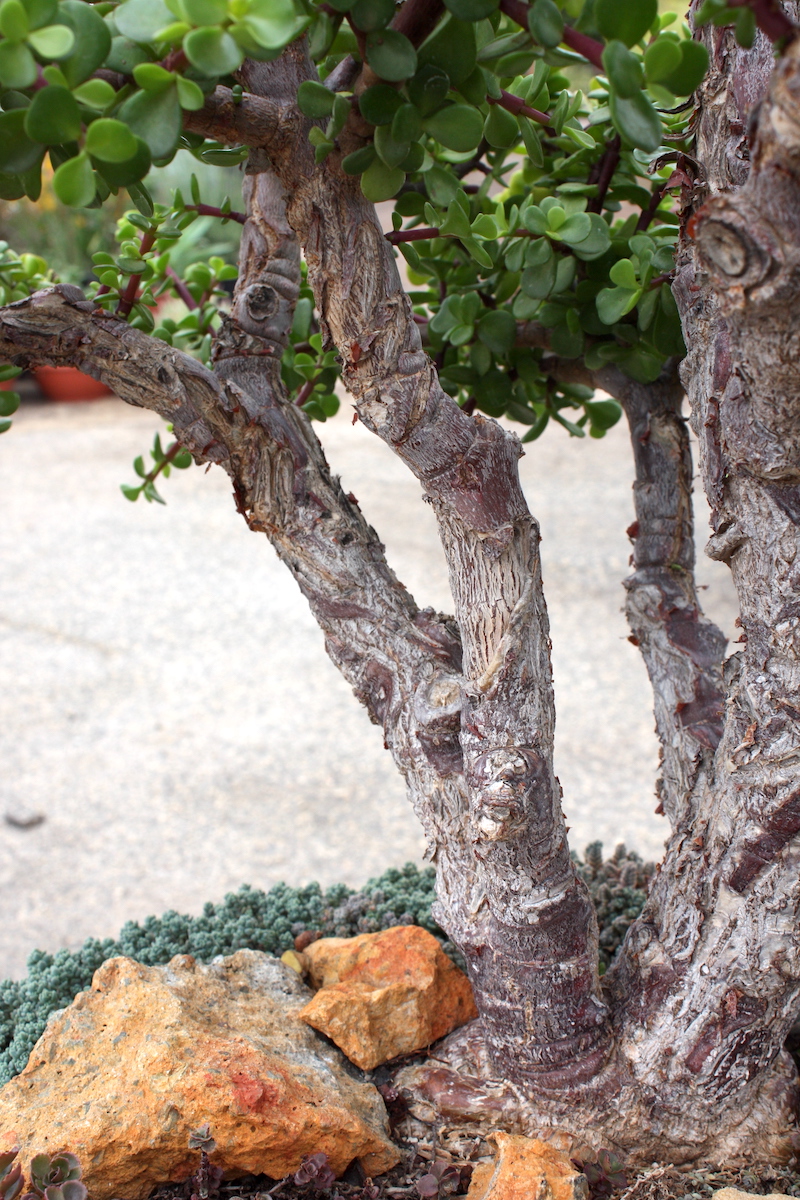
Scarred trunk, after healing. By Tom Jesch, Waterwise Botanicals
You also might start with common, smooth-skinned Portulacaria afra, perhaps one dug out of your garden and heavily pruned. To give it a gnarled bark, slash its trunk and branches with a knife. As wounds heal, they'll leave scars. This sounds brutal, but Portulacaria afra can handle it. After all, in Africa, elephants inadvertently propagate the plant by stomping and shredding it. Its common names are "elephant bush," "elephant food," and in Africa, "Spekboom."
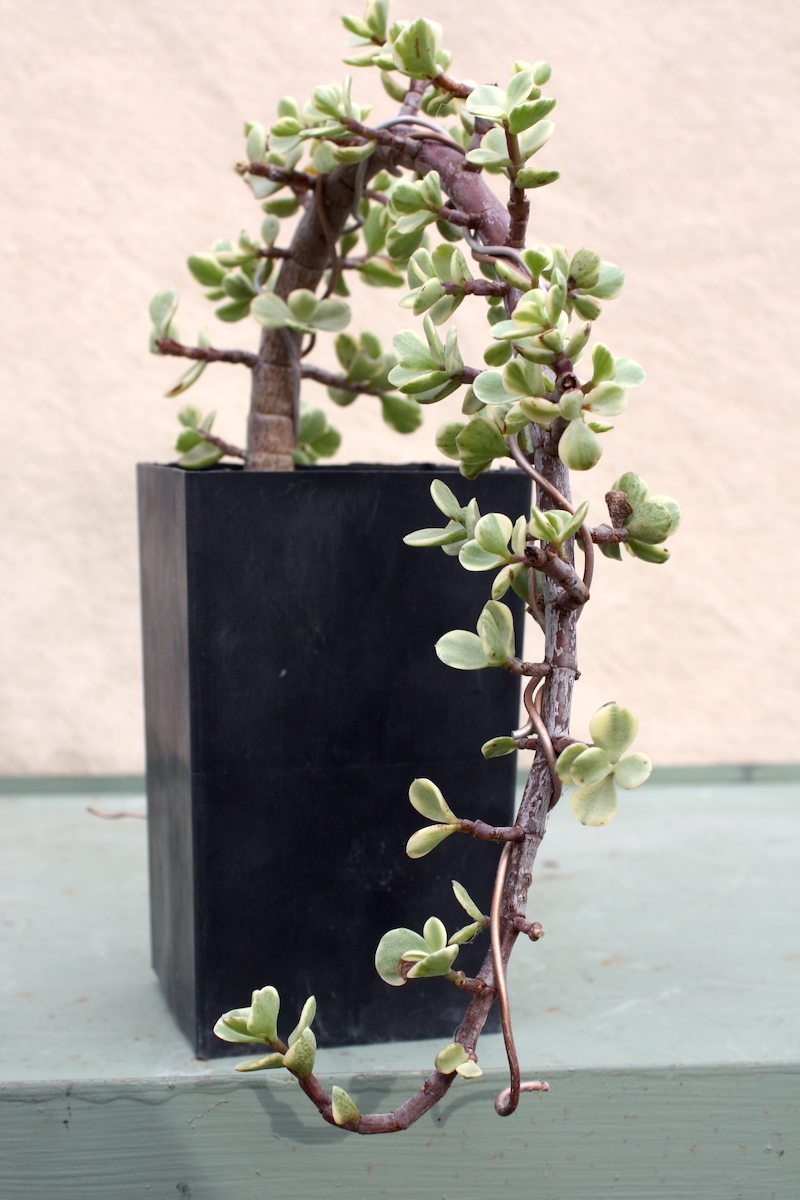
Wire wraps a Portulacaria afra 'Variegata' to aesthetically direct its growth. (Rudy Lime)
Portulacaria afra also doesn't mind having its roots pruned and elevated. Moreover, plants have flexible branches that can be wrapped with bonsai wire and trained downward, sideways, twisted, curved, and/or upright---however you like.
In the video, Anthony removes a 'Cork Bark' from its nursery pot, prunes its roots, and plants it in an art pot (by Jerry Garner) using Botanic Wonders' own brand of potting mix. Next he top-dresses the soil with crushed lava, adds a decorative rock, and prunes the branches to encourage cloud-like leaf clusters ("pads").
Tools
Anthony uses these tools in the video. Links are affiliate (Amazon).
Types of succulent bonsais
Portulacaria afra is arguably the easiest, but as Anthony notes, "any cactus or succulent can be staged like a bonsai."
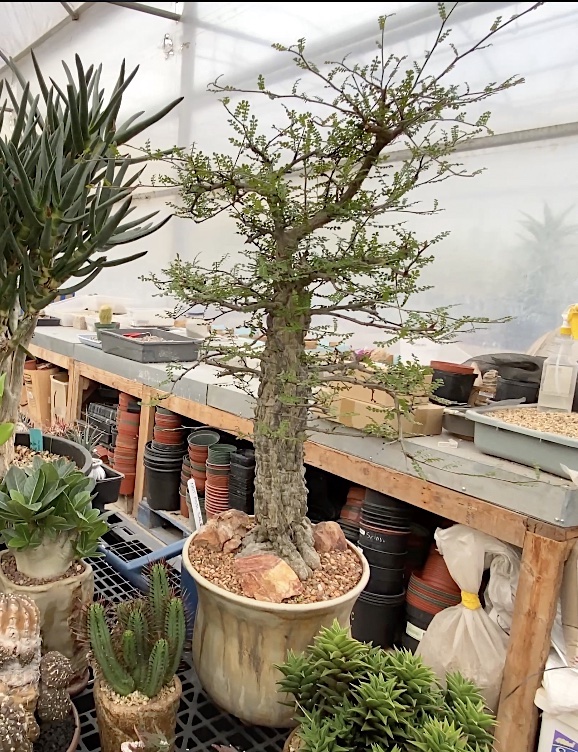
Operculicarya decaryi bonsai with elevated roots (Al Klein)
Those on display at Botanic Wonders include an impressive Operculicarya decaryi owned and trained by Al Klein, Anthony's business partner. Although only a few feet tall, it resembles a majestic redwood.
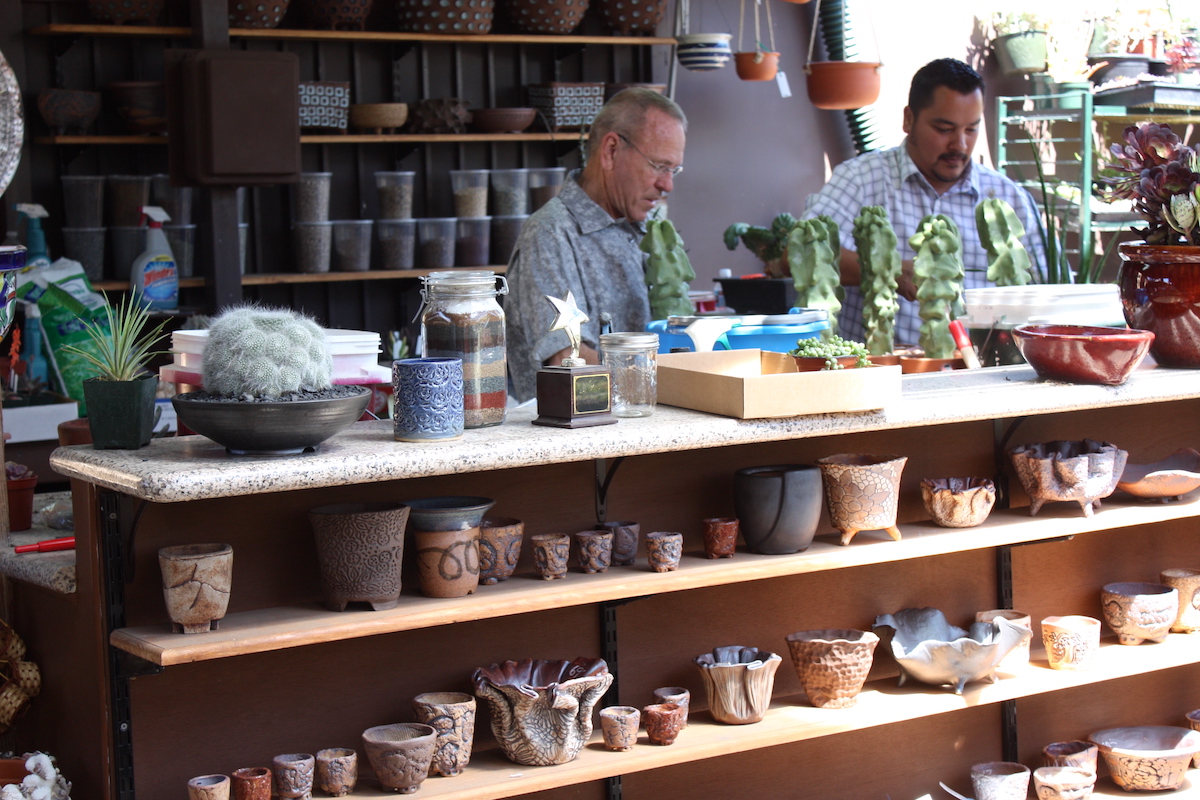
Larry Grammer and Michael Romero pot-up succulents at California Cactus Center in 2010
I've been fortunate to meet and photograph the work of several noteworthy succulent bonsai artists. Sadly, both Rudy Lime of San Diego and Larry Grammer of Pasadena's California Cactus Center have passed. I've added their names (and those of other artists, if known) to captions of their creations shown here.
Find additional ideas for your own collection of bonsai succulents in the gallery below. As always, comments and questions are most welcome!
Succulent Bonsai Gallery
Related Info on this site
Portulacaria afra (Elephant Bush): Photos, Varieties, Cultivation, Uses
Portulacaria afra: Uses, Photos and Varieties Native to South Africa, elephant bush thrives outdoors in warm, sunny climates such as CA, Arizona, Florida and Hawaii See All Succulent Types Aeonium Agaves Aloes Cactus Crassula Echeveria Euphorbias Ice Plants Kalanchoe Portulacaria Senecio About Portulacaria afra Portulacaria afra (elephant’s food, elephant bush, spekboom) thrives in warm, sunny climates.…
Plants and Pots at the Cactus & Succulent Society Show
To see amazing succulents in elegant art pots, attend a Cactus & Succulent Society Show. The largest in the US is the annual Inter-City Show at the Los Angeles Arboretum mid-August. Judges award ribbons and trophies based on how well a specimen is grown, its rarity, and how well it’s “staged” in its pot. Pots aren’t…
The post DIY Succulent Bonsai appeared first on Debra Lee Baldwin. Copyright © Debra Lee Baldwin.
from Debra Lee Baldwin https://ift.tt/uTMX81H
via IFTTT

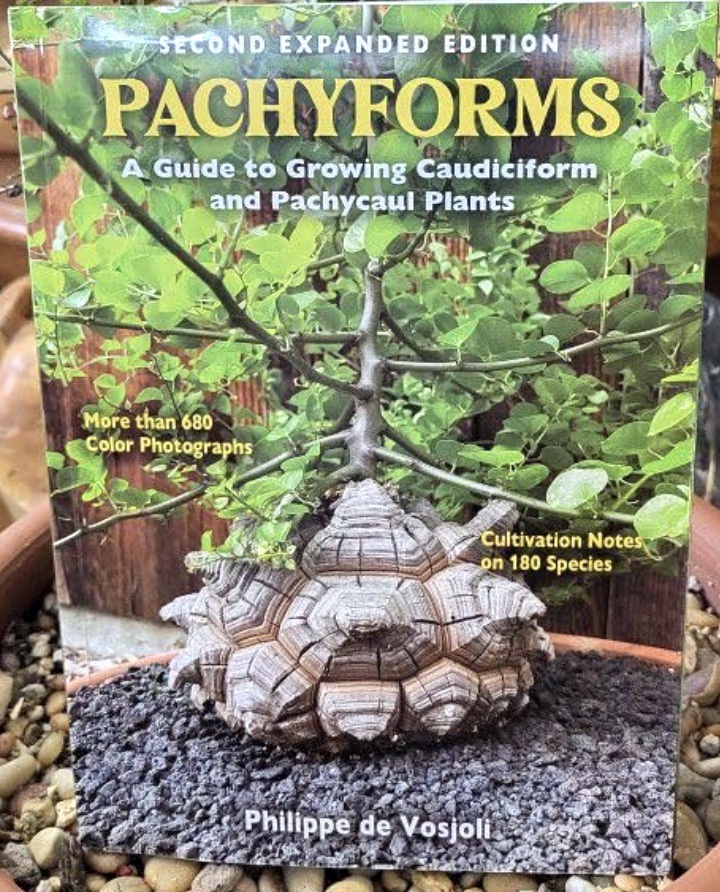
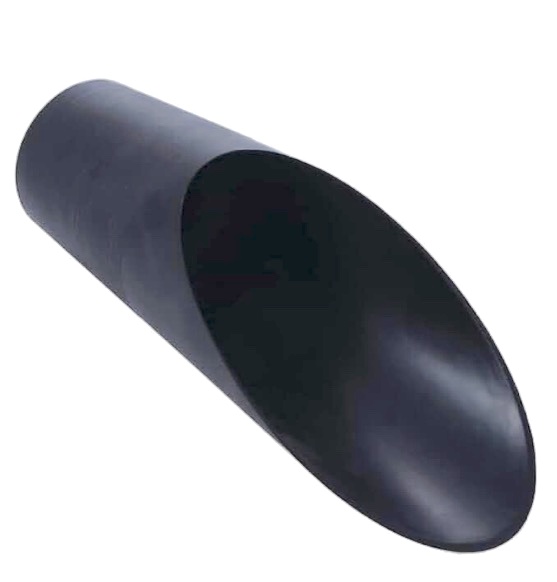
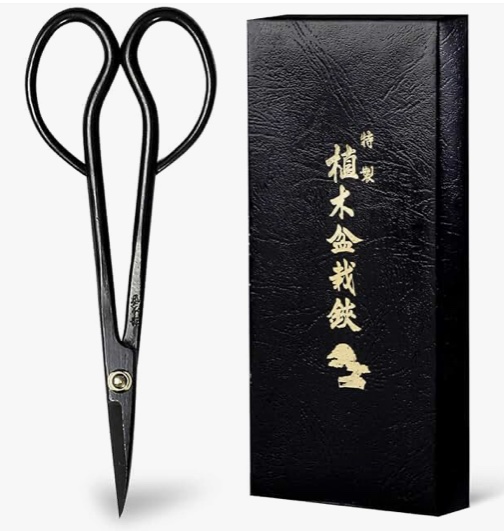
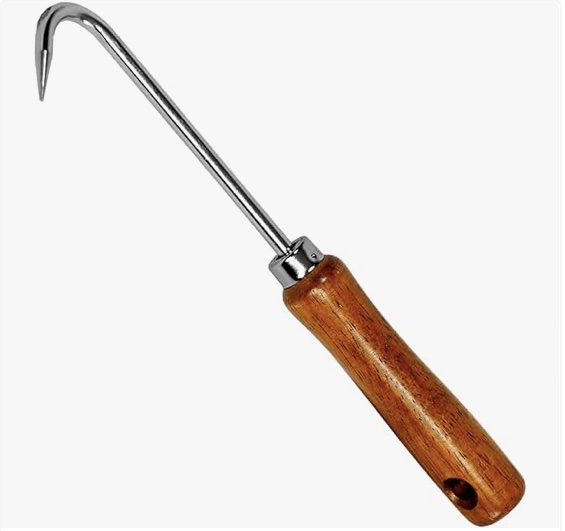
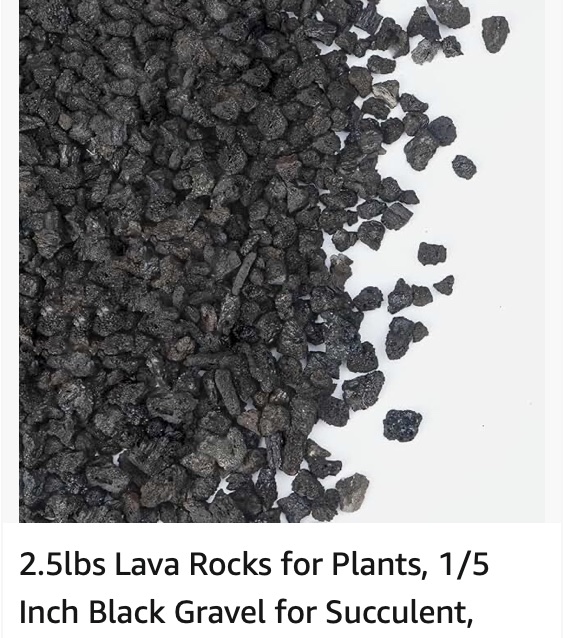
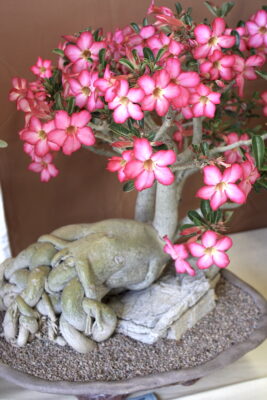
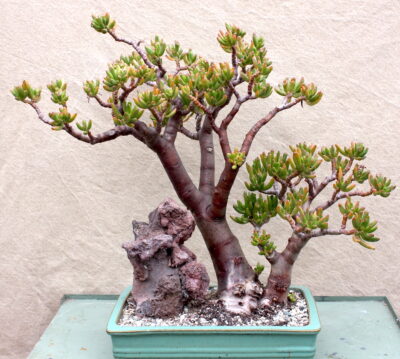
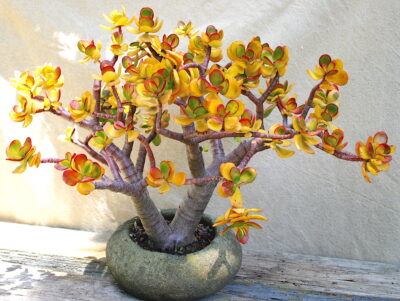
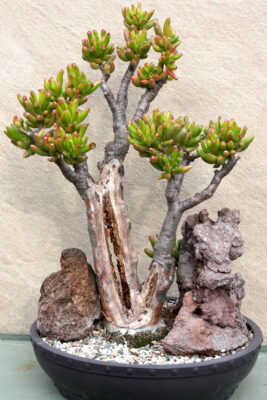
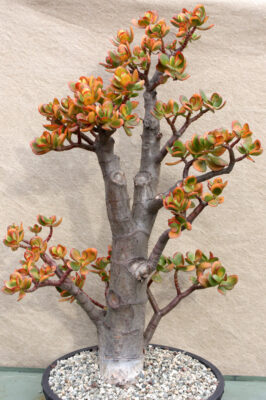
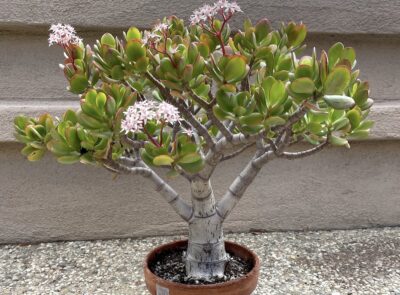
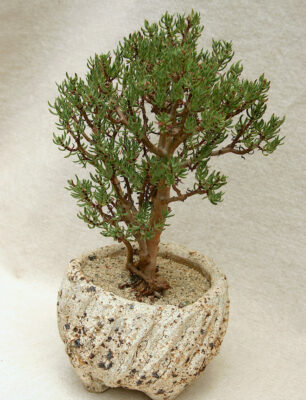

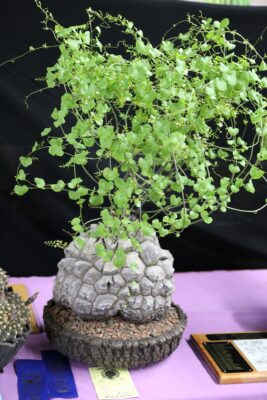
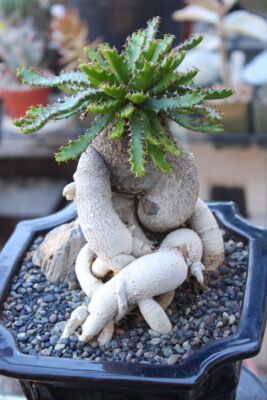
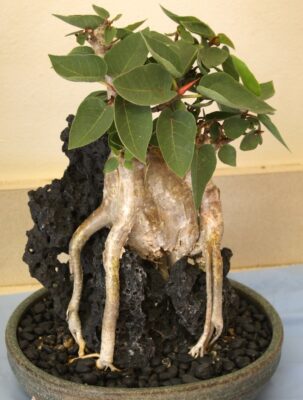
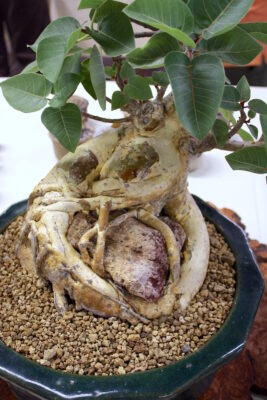
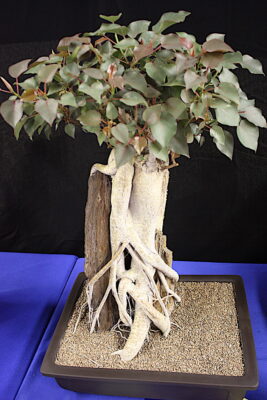
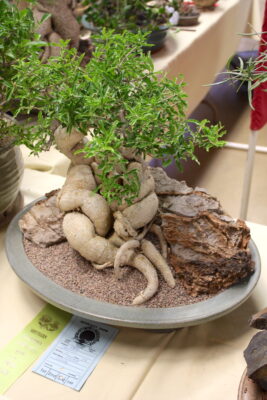
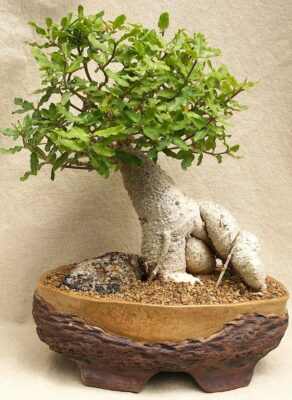
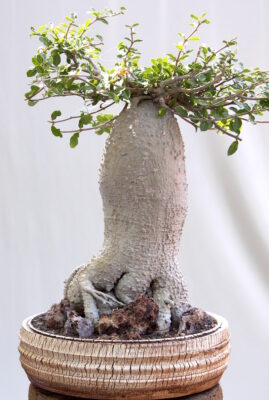
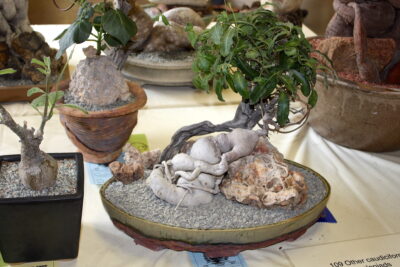
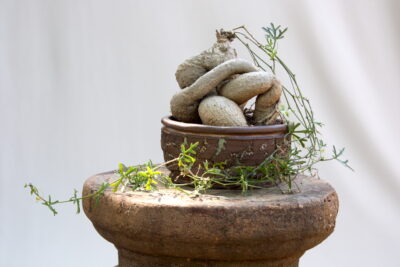
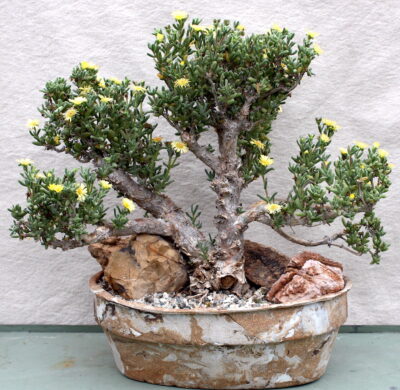
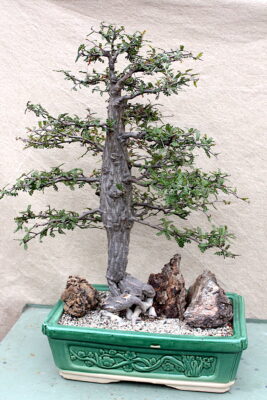
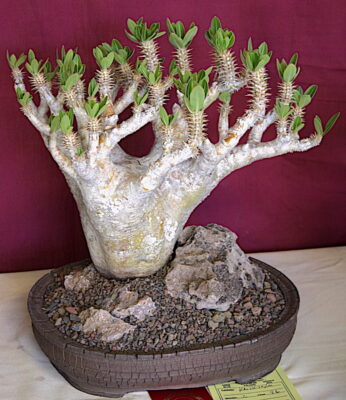
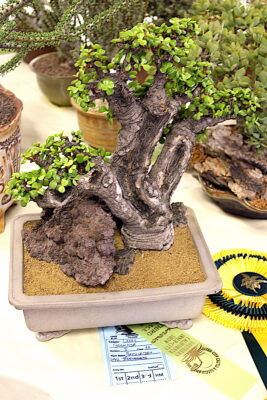
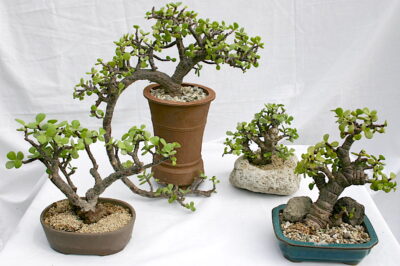
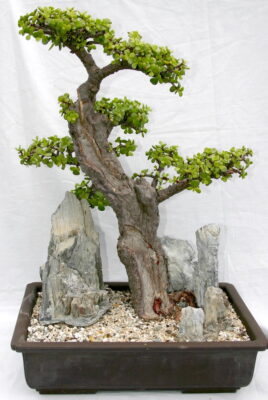
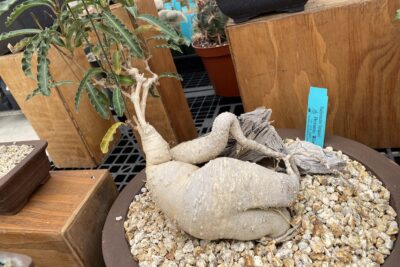
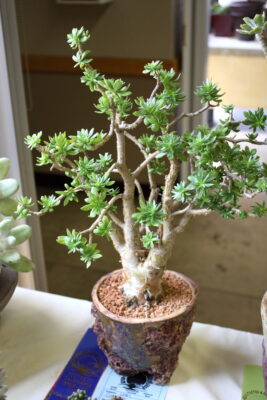
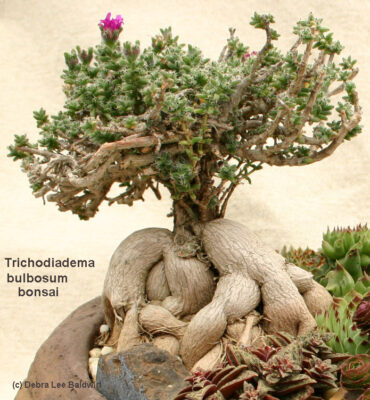
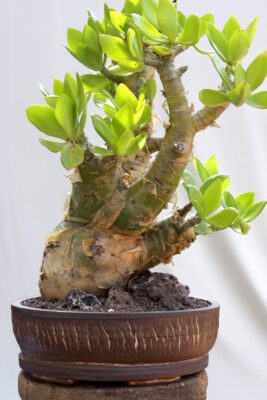
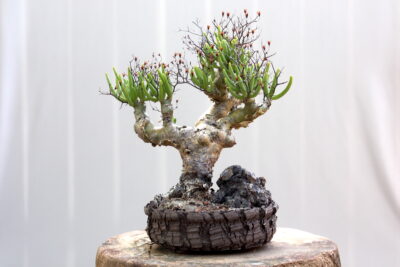
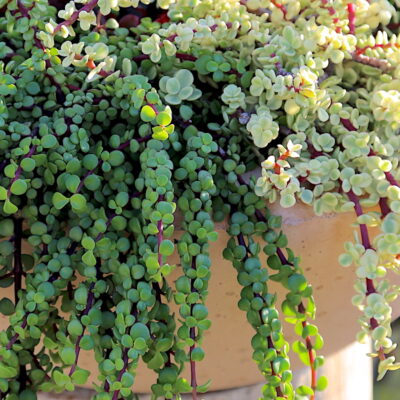
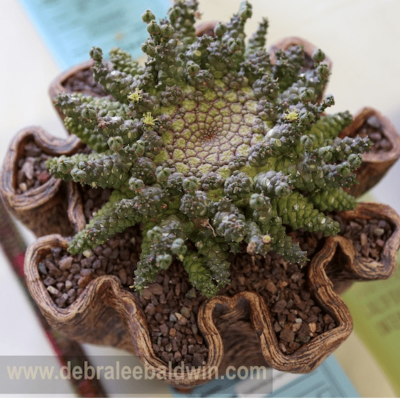
No hay comentarios:
Publicar un comentario